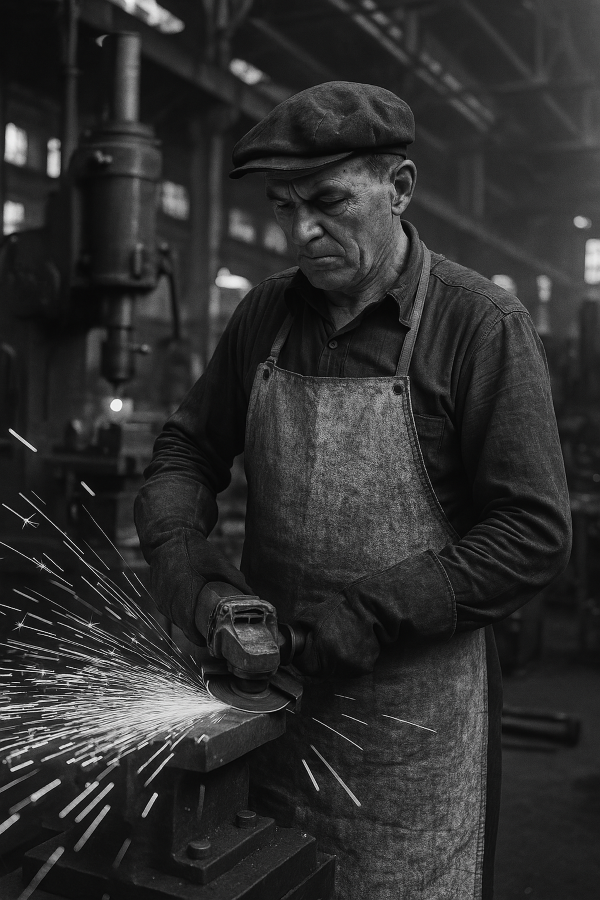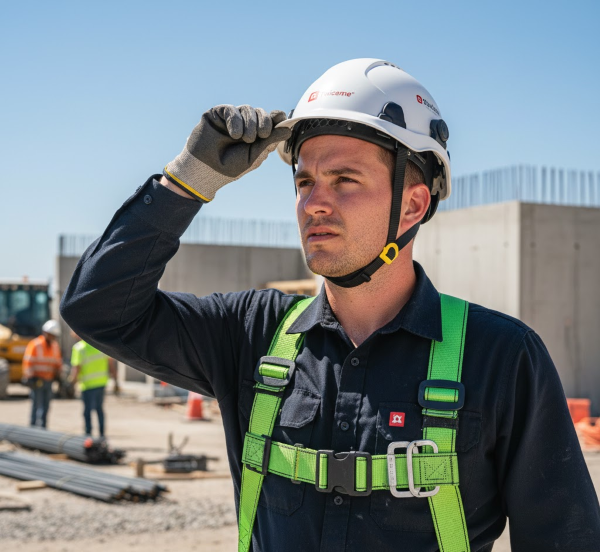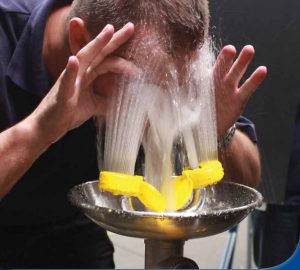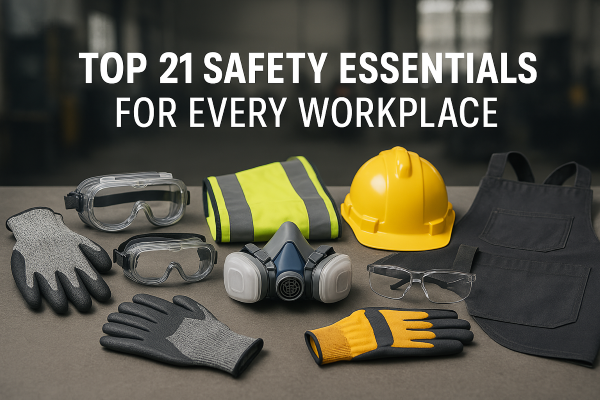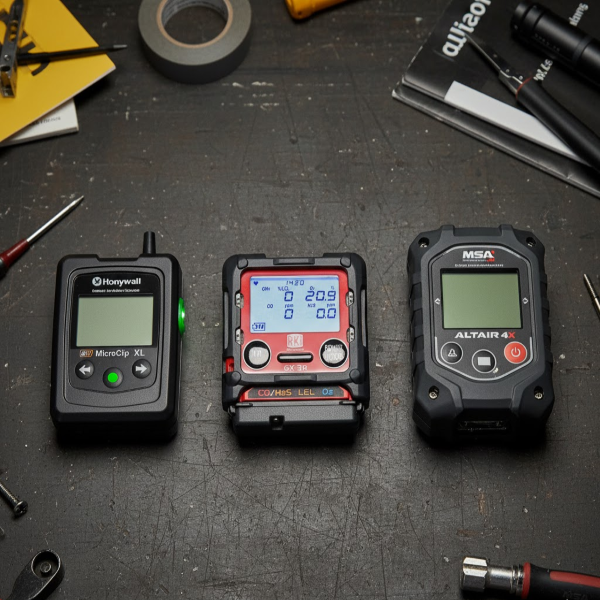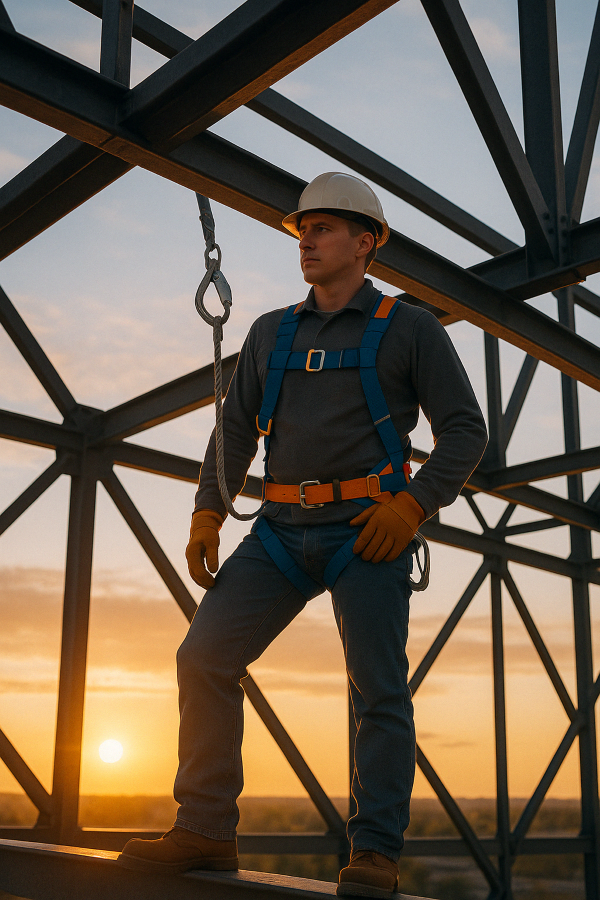The Best Staff Shoes for Long Shifts: Non-Slip Comfort That Protects Your Feet
When you’re on your feet for 8+ hours a day, the wrong pair of shoes can lead to more than just discomfort—they can cause fatigue, pain, and even workplace injuries. Whether you’re working in a hospital, restaurant, warehouse, or retail store, staff shoes with the right blend of comfort, slip-resistance, and support are a must.
In this guide, we’ll break down the best types of staff shoes, what to look for, and how to choose the perfect pair for your role and foot type.
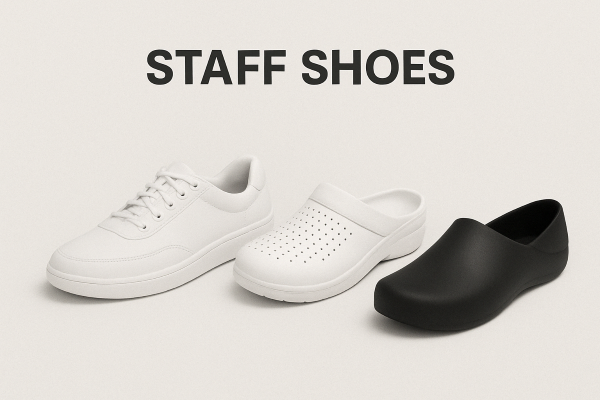
Why Staff Shoes Matter More Than You Think
Foot protection is often overlooked—until you’re halfway through a double shift with aching arches and sore heels. Here’s why high-quality staff shoes are essential:
- Non-slip soles reduce the risk of falls on slick surfaces.
- Shock-absorbing midsoles help prevent joint pain and lower back fatigue.
- Arch support and cushioning enhance comfort during long hours.
- Breathable and antimicrobial materials reduce sweat and odor.
Types of Staff Shoes by Profession
Not all staff shoes are created equal. Let’s look at the most popular options across industries:
👨⚕️ Healthcare: Clogs & Cushioned Slip-Ons
- Waterproof
- Easy to clean
- Padded insoles for comfort
- Example: Crocs On-the-Clock Work Slip-On
🍳 Restaurant & Kitchen: Slip-Resistant Sneakers
- Superior grip on wet/oily floors
- Lightweight, often water-resistant
- Supportive yet breathable
- Example: Skechers Work Sure Track
🛍️ Retail & Hospitality: Stylish Supportive Sneakers
- Combines looks and comfort
- Ideal for walking/standing for hours
- Flexible outsoles
- Example: New Balance 626v2
🧰 Warehouse & Industrial: Safety-Toe Boots
- Steel/composite toe for protection
- Thick tread for tough surfaces
- Anti-fatigue footbeds
- Example: Timberland PRO Powertrain Sport
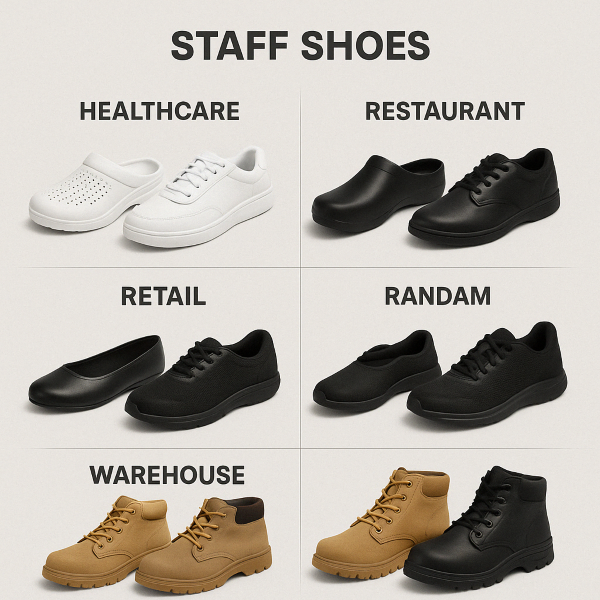
Comparison Table: Top 5 Staff Shoes for Long Shifts
| Product | Best For | Key Features | Price Range | Slip Resistance |
|---|---|---|---|---|
| Crocs On-the-Clock Work Slip-On | Healthcare | Cushioned footbed, easy clean, slip-on | $40–$60 | High |
| Skechers Work Sure Track | Restaurant Staff | Memory foam insole, slip-resistant sole | $60–$80 | High |
| New Balance 626v2 | Retail Workers | Athletic design, support, non-slip sole | $75–$90 | Moderate-High |
| Timberland PRO Powertrain Sport | Industrial/Warehouse | Alloy toe, shock-absorption, EH protection | $100–$130 | High |
| Dansko XP 2.0 Clogs | Long Shifts Overall | Arch support, rocker bottom, anti-fatigue | $140–$160 | High |
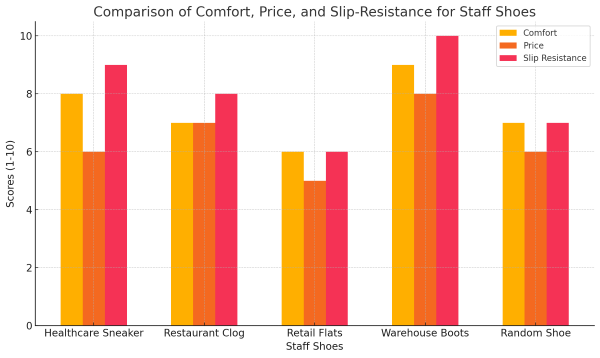
What to Look for in Staff Shoes
Choosing the right pair isn’t just about style—it’s about long-term health and safety. Here’s what to prioritize:
1. Slip Resistance
Look for outsoles tested for wet, oily, or uneven floors. Slip-resistant rubber with specific tread patterns makes a big difference.
2. Support and Cushioning
Arch support, a cushioned footbed, and shock-absorbing midsoles are crucial for preventing foot and back fatigue.
3. Durability
Your shoes should last at least 6–12 months with daily use. Look for materials like leather, high-grade EVA foam, and strong mesh.
4. Fit and Breathability
A snug fit prevents blisters, while breathable uppers help with odor control and moisture.
5. Easy Maintenance
Shoes that are machine-washable or wipe-clean save time, especially in healthcare or food service.
Real-World Use Cases
- Nurses: Say goodbye to plantar fasciitis with memory foam slip-ons that feel like walking on clouds.
- Chefs: Non-slip, oil-resistant sneakers keep you upright even during rush hour chaos.
- Cashiers: Lightweight supportive shoes mean no more heel pain after 10-hour shifts.
- Warehouse Staff: Composite-toe shoes with cushioned insoles protect your feet from falling tools—and fatigue.
Safety Tips for Long Days on Your Feet
Even with great shoes, foot care matters. Here are some bonus tips:
- Rotate between 2 pairs of shoes weekly to reduce wear.
- Replace insoles every 3–4 months for optimal cushioning.
- Use compression socks to reduce swelling.
- Take breaks to stretch your legs every few hours.
- Keep your toenails trimmed to avoid pressure pain.
Final Thoughts: Invest in Your Feet
Your feet carry you through every shift. Don’t let poor footwear lead to unnecessary injuries or burnout. Whether you’re looking for slip-resistant sneakers, supportive clogs, or protective safety shoes, the right pair of staff shoes is more than a purchase—it’s an investment in comfort, safety, and performance.
So next time you’re dreading the last few hours of your shift, remember—it could be your shoes holding you back.
Take a step toward pain-free workdays—your feet will thank you.

